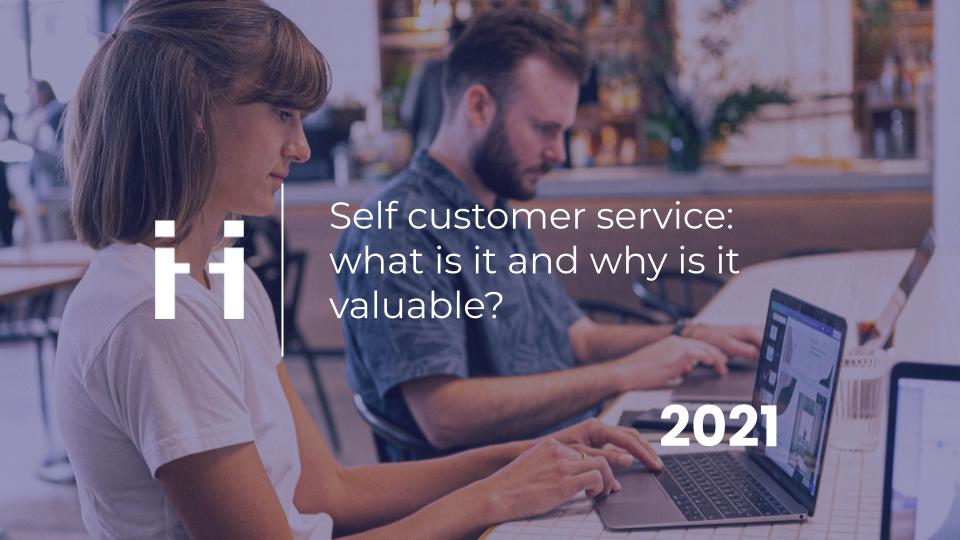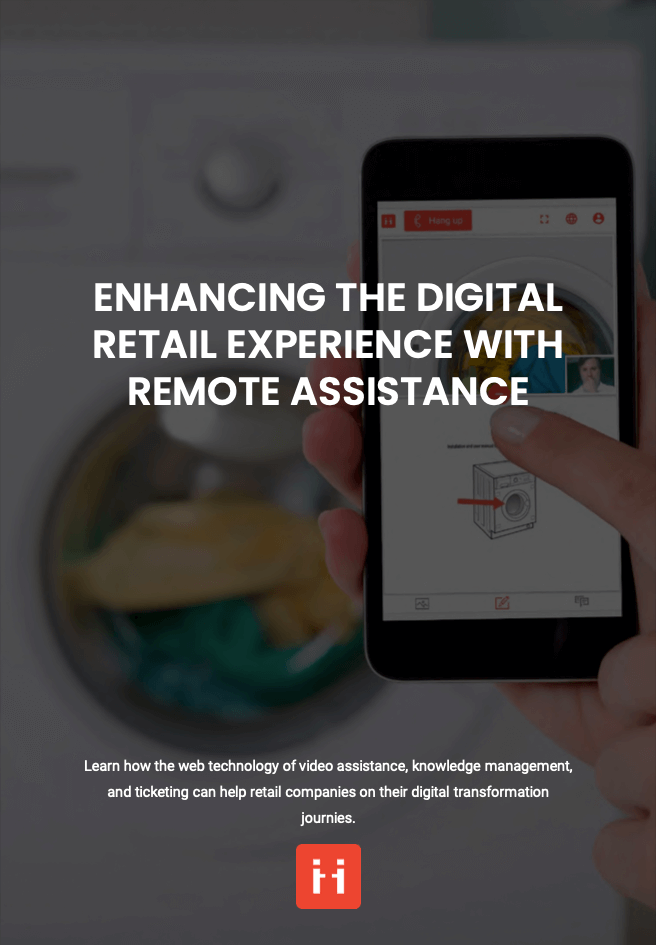
Share this article
Share this article
• Implements what your customers have been calling for
• Increases customer confidence and makes them feel empowered in finding their own solutions
• Helps customers get to know the product
• Saves your company by lightening the load of the customer service team
These are just some examples that show the value of self customer service. The customer service market has become increasingly digitalized, so why not take advantage of it and give your customers what they want? Especially since it has been shown that businesses that focus on customer experience develop an 80% increase in overall revenue. Having said that, what is customer self-service and which strategy should you implement to reap the benefits?
Customer self-service is a customer-centric system that allows them to find answers on their own. To do this, many services and tools are usually used like FAQs, live chat support, co-browsing, and video assistance. They all assist the customer to find precise answers, be it through providing them with ways to have someone to guide them through the process at every stage, connect them to a live chat with built-in video assistance, or just be there to answer any questions. This non-invasive assistance is ideal since nowadays many customers prefer to find information on their own – instead of contacting a designated person, by using these customer self-service features they can find everything they need to know to solve problems independently.
An important thing to retain is that self customer service does not fully replace conventional customer service and customer support. That is why having options is still essential when a customer is unable to resolve their issue on their own. You still need great customer service – whether you operate in a customer contact center or a call center, and different systems – such as a knowledge management system and a ticketing solution, to keep your company’s day-to-day life in check. For example, the information created by using your corporate knowledge base is usually organized according to common issues, therefore is easier for your customers to find and navigate around. Although it is true that self customer service helps to unload some repetitive responsibilities, your customer service agents should nevertheless work behind the scenes to constantly update information and respond to any chat conversations.
Customer self-service benefits both the customer and business. The customers benefit because solving their own issues saves them time and effort they would need to put into reaching out to a support agent – consequently letting them get back to work faster and get on with their day. It also empowers them in their knowledge and ability to use products or services concerned. They become more successful in using your product and more satisfied with the brand. Businesses, on the other hand, benefit by reducing the workload of customer support agents. They can furthermore devote more time and attention to complex and important customer issues. Both the customer and the business are happy, which increases customer satisfaction, loyalty, and customer retention rates, and further sustainable business growth – all thanks to self customer service.
Nowadays, customers increasingly turn to digital channels for help. There are many reasons for it – customers don’t want to be dependent on someone else when seeking help, the younger generations become more and more averse to phone calls, contacting customer support can sometimes be a huge time drain… To put things more into perspective, it was reported that over 70% of consumers actually prefer customer self-service and resolving issues themselves, as they feel like it takes much less time and effort. More and more customers tend not to trust customer service agents and prefer to reach out to others who have experienced similar issues. With this need for a more personal and relatable form of customer service, a support forum within customer self-service was created.
A support forum, also called a community forum, is a place where users can ask their questions and receive answers from other users/customers, rather than from the company. They can also search for previously asked questions within the area of their interest. Companies can run these forums with a community moderator, who can supervise the ongoing discussions and add the most important findings to the company’s knowledge base.
How can these support forums be useful? Sometimes the best people to address customer issues are simply other customers who have experience with the same problem. As they are the real-world users who previously have used the same product or service, they can see issues that agents working in technical support may overlook. They might also have similar personal experiences and answer with more empathy. Lastly, customers trust the objectivity of fellow users on forums – they are not trying to sell the product or resolve your problem just so you leave a positive review. They just want to share their expertise and enthusiasm with how they came up with a solution.
The most basic version of customer self-service is the classic frequently asked questions page on the website, where a company will include a list of the most commonly asked questions about its products and services. FAQ pages are a great way to give enough information for customers who struggle with simpler issues, or those that occur more often, and to prevent many customer service calls from the very beginning. More advanced customer self-service portals though expand on this concept by encompassing all the issues a customer could face with a product or all of the questions they may have. Hence in order to create the most successful customer self-service FAQ page, one needs to carefully think about what questions to include, consider who will answer, what language they will use, and how to offer next-step solutions for when FAQs are not enough.
Firstly, make sure your FAQ page is easy to find on your website and through your social media. Once customers reach the page, your FAQ page has to be well-organized, simple, and easy to navigate around – after all, the premise of an FAQ page is to let your customers serve themselves.
Keep your answers short and simple – a sentence or two, as nowadays customers expect quick reactions and fast replies – and consider how you can add extra value to your customers’ experience. The answers should include carefully gathered data, and the page organisation has to have clear criteria and categories, as well as offers further solutions. If you really want to meet your customer expectations towards your customer self-service, think about making use of your CRM data to discover the most common questions across all channels and figure out how to best categorize them.
You can also embed other tutorials or articles within your answer, for customers to find useful related resources easily. If a customer’s question isn’t listed in your FAQs, make it easy for them to get help another way. You can include a search bar on the page, so they can browse your site using keywords, and leave a space to ask further questions if they have not found what they were looking for.
Implementing a customer self-service strategy, alongside well-organized customer service, is the best way to create healthy and strong customer relationships and make your customer satisfaction levels jump crazy high. Customer self-service, therefore, takes your customer service to the next level. Answer a customer’s query, and you’ve solved their problem for a day. Give them the tools to solve it themselves, and you’ve solved their problems for the lifetime of the product or service.

Free E-book available now!